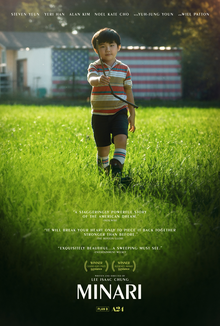 Minari
Minari
Year: 2020
Rating: PG-13
Length: 115 minutes / 1.92 hours
One has to wonder if last year’s Best Picture, Parasite (2019), helped pave the way for Minari (2020). While both are quite different films, the acceptance of South Korean cinema has been a long time coming. However, one thing both films share is their sense of foreshadowing. The subtle phrasings and actions of the characters seem inconsequential at first but evolve into hard-hitting plot points as the movie progresses. These story beats hit hard even with a relatively simple plot and left me emotionally devastated with each twist and turn.
Set in 1980s America, Minari speaks into the evolution (or, some would say, death) of the American Dream. The belief that anyone from anywhere can come to this land of opportunity and make a living doing what they want to do is the strongest in the immigrants who came here hoping to capitalize on the United States’ freedom. But, unfortunately, it’s not as easy as finding an empty field and successfully starting a farm. Just when you think the Yi family can catch a break, something else breaks. Hardship rears its ugly head with every setback, pushing the dream just out of reach every time.
The core of Minari is in the family unit, which includes bringing Grandma Soon-ja (Youn Yuh-jung) in to help. And while she is by far the best character in the film, it’s only because she plays off the children so well. My only qualm with Minari is its portrayal of Christians, even though I’ve come to accept that these stereotypes are the norm for people of the faith. In the end, though, Minari is about perseverance and grit, two qualities we could stand to have more of in this modern society.
An examination of the American Dream through an immigrant family’s struggles, I give Minari 4.0 stars out of 5.


